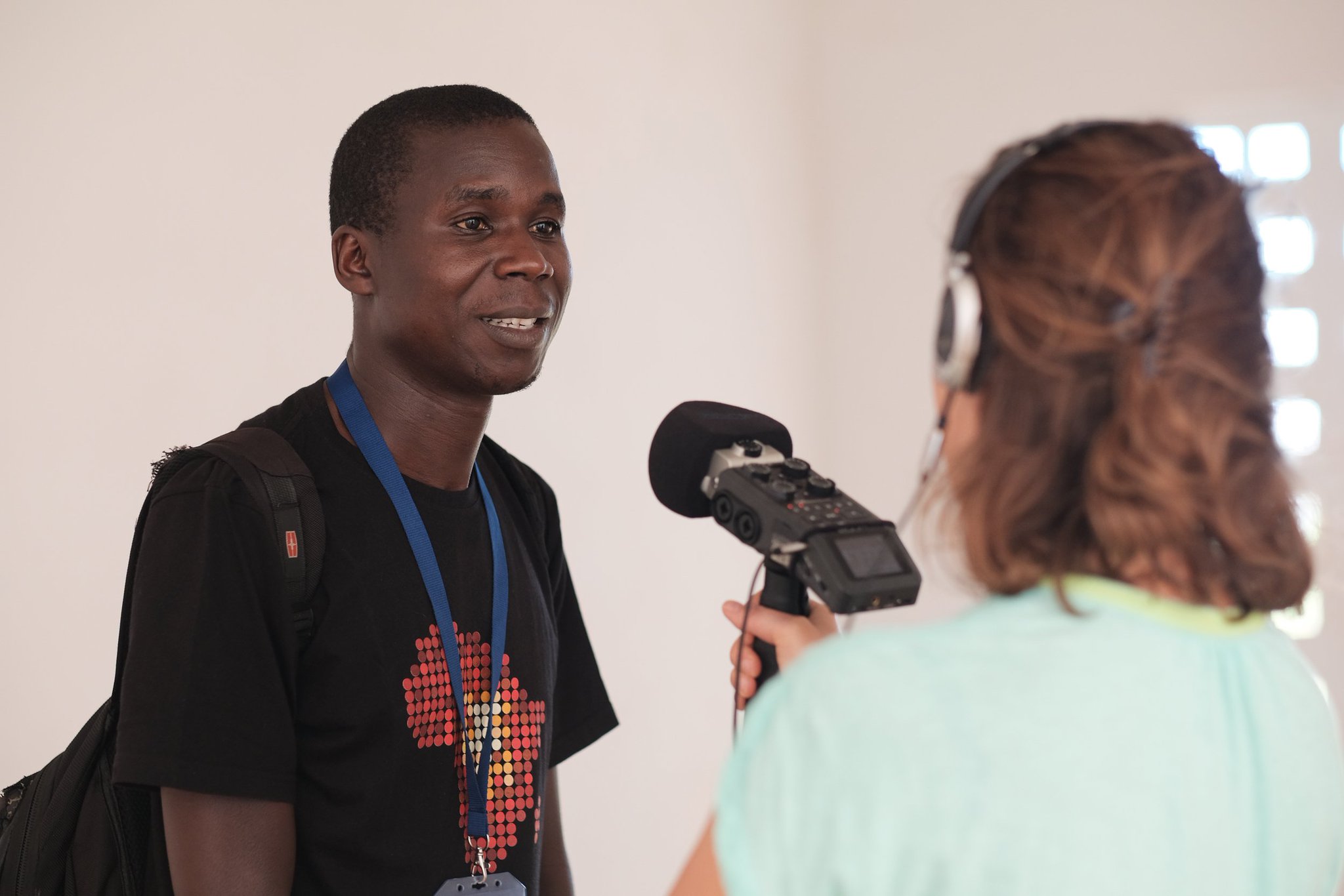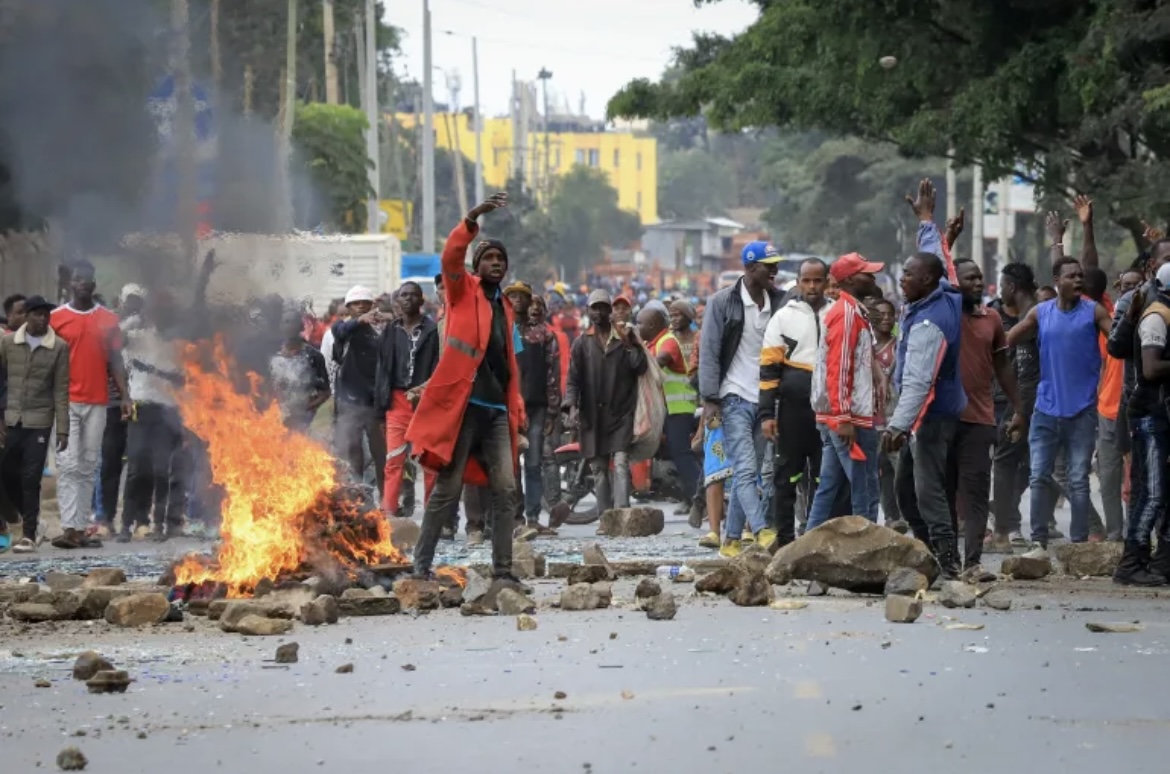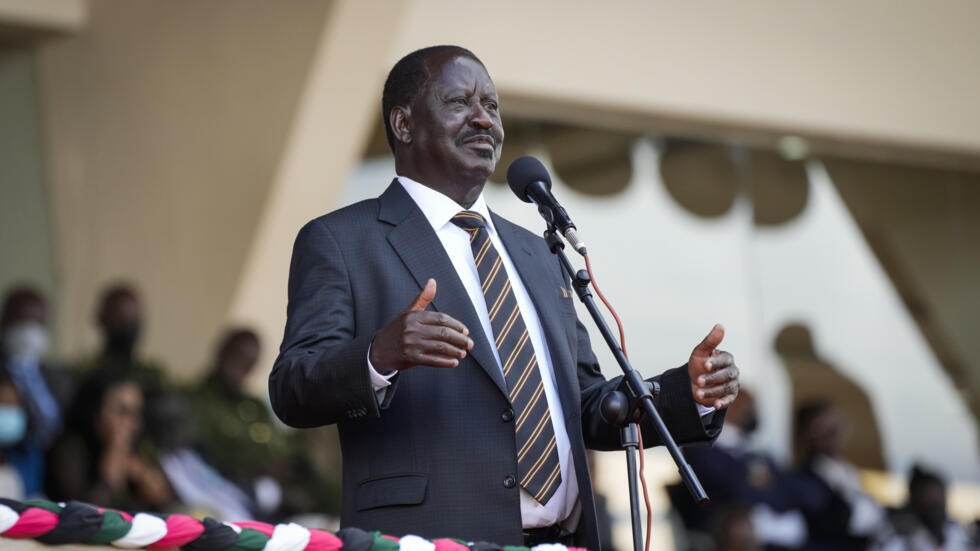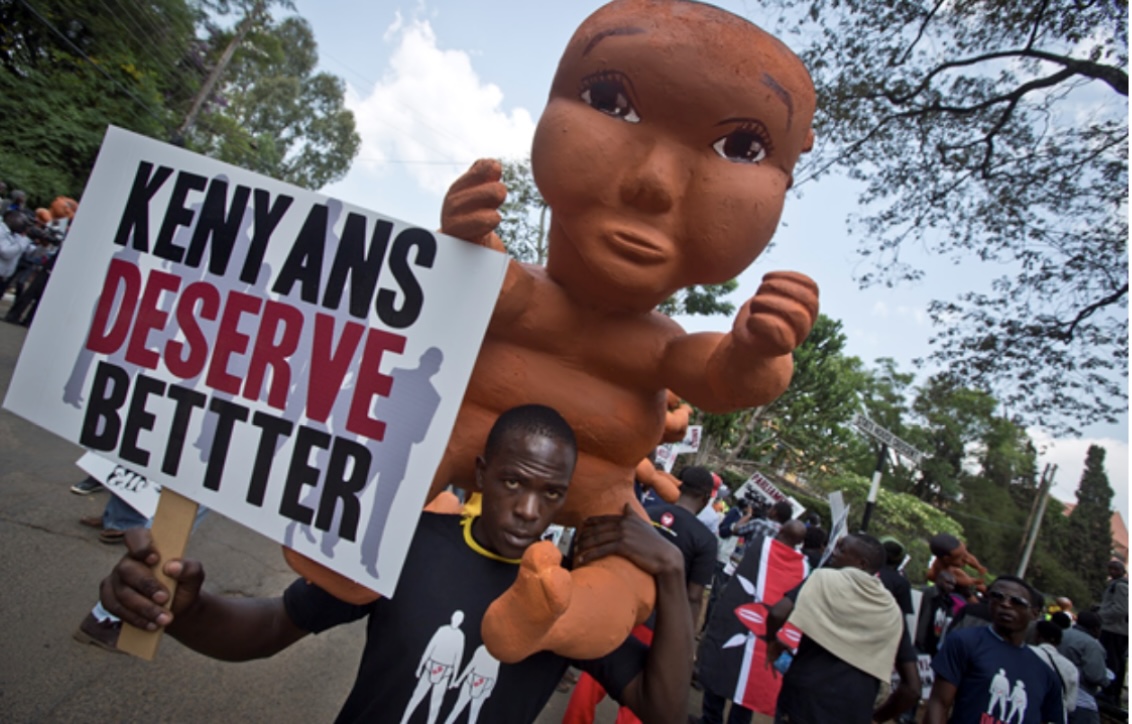In Kenya, a sinister narrative festers like a malignant wound: “Kenyans love thieves.” This oft repeated trope, reverberating through media, social discourse, and political rhetoric, is no mere expression of collective frustration; it is a meticulously orchestrated psychological weapon designed to entrench kleptocracy by demoralizing the morally upright majority. Far from a spontaneous lament, this narrative is a calculated stratagem to reinforce deleterious voting habits, induce voter apathy among the rational and educated, and pave an unobstructed path for corrupt elites to perpetuate their stranglehold on power.
The 2022 general election laid bare the devastating efficacy of this ploy: approximately 8 million eligible voters boycotted the polls, while another 4 million failed to register, their spirits crushed by the relentless churn of corrupt leaders and the pervasive myth of their own complicity.
This article dissects the premeditated machinery of this narrative, its weaponization through optics and disinformation, and its catastrophic consequences for Kenya’s democratic soul, admonishing Kenyans for succumbing to this engineered despair and lambasting the complicity of churches, civil society, influencers, and podcasters in its propagation.
The Architecture of Engineered Hopelessness
The “Kenyans love thieves” narrative operates as a psychological cudgel, wielding a tripartite strategy of narrative reinforcement, voter suppression, and elite entrenchment.
First, it is perpetuated by a collusion of political actors, media outlets, and social influencers who frame electoral choices as a false dichotomy: vote for one corrupt candidate or abstain entirely. This rhetoric, as articulated by Bonface Witaba, a Kenyan writer, who decried, “We can’t keep electing crooks and expect saintly behaviour,” embeds the notion that all candidates are irredeemably corrupt, rendering voting an exercise in futility.

FRAUD: Activist Boniface Witaba guilty of perpetuating myths that elections are a self-defeatist undertaking
Second, this narrative targets the morally upright, predominantly middle income, educated voters, who, fatigued by the absence of credible alternatives, retreat into apathy, thus diminishing the reformist vote.
Finally, low turnout ensures the dominance of a corrupt elite, who rely on ethnic mobilization and bribed voters to secure power, perpetuating a cycle that is not accidental but a deliberate design to hollow out democratic participation.
An example of a state-sponsored political propagandist using this strategy to hawk fatigue, hopelessness and surrender is Mark Bichachi saying “Kenyan politics are still very ethnic based”.

State-sponsored propaganda hoodlum Mark Bichachi uses such refrain-phrases on heavy rotation to induce lethargy, fatigue and hopelessness.
The 2022 election statistics are a stark indictment of this strategy’s success. The Independent Electoral and Boundaries Commission (IEBC) targeted 6 million new voter registrations but secured only 2.5 million, with just 12% of the 4.5 million eligible youth (aged 18 to 35) registering in the final phase. Of the 22 million registered voters, only 14 million voted, leaving 8 million eligible voters absent, a turnout of under 65%, compared to 78% in 2017 and 86% in 2013. Another 4 million failed to register, their disengagement fueled by exhaustion with a system that recycles figures like Uhuru Kenyatta, William Ruto, and Raila Odinga, all tainted by corruption or violence.
This boycott was not mere indolence but a surrender to the narrative of hopelessness, as Sheila Mwiti, a Nairobi podcaster, articulated: “This election is too dysfunctional for my vote to be meaningful”. She took the bait or was paid to perpetuate the myth. My money is on the latter.

State-sponsored propaganda hoodlum Sheila Mwiti was quoted as saying her vote is meaningless, a strategy crafted to induce voter-apathy
The Optics of Despair: Scripted Videos and Grotesque Illusions
Beyond words, the narrative migrates to optics, a vile theater of manipulation that exploits Kenya’s socioeconomic divides. Scripted videos of voters being bribed with petty cash, maize flour, or T shirts, alongside images of “ugly, dirty looking goons” from slums dominating political rallies, flood social media platforms like TikTok, which saw 4 million views of 130 election related videos in 2022. These visuals are not random but curated to project a fictional illusion: that slum dwellers, swayed by handouts, hold the statistical weight to sway elections.

These grotesque images shared by corrupt outlets like Al-Jazeera, BBC and Guardian, are sponsored to induce voter apathy and project an image of constant tribal and partisan conflict.
This is a lie. Kenya’s urban poor, while significant, lack the numbers to dominate national polls; the 2019 census shows that 40% of Kenyans live in urban areas, with slums like Kibera and Mathare constituting a tiny fraction of the electorate. Yet, these images are weaponized to disgust and deter middle income, rational, educated voters, who recoil at the grotesque spectacle and retreat into their cocoons, oblivious to the monumental damage their abstention inflicts.
This reverse psychology is devastatingly effective. The middle class, comprising teachers, doctors, civil servants, and professionals, Kenya’s moral and intellectual backbone, represents the majority of the electorate, with 60% of Kenyans classified as middle income or above by 2022 standards. Yet, their boycott hands power to a minority mobilized by ethnic loyalties and bribes with expensive campaigns (costing up to KSh 4.4 billion for presidential races) excluding credible candidates and perpetuating a corrupt elite.
The optics of “dirty goons” and bribed voters amplify this illusion, convincing the educated that their votes are drowned out by the unwashed masses, a lie that ensures their self exclusion from a process of colossal magnitude to their lives.
Historical Roots and Systemic Complicity
This strategy is rooted in Kenya’s post colonial kleptocracy, where elites like Jomo Kenyatta, Daniel arap Moi, and their successors entrenched a “colonial system that incentivises and rewards corruption”. The 2010 Constitution, meant to decentralize power and curb graft, has been undermined by a political class that thrives on centralized authority and ethnic division.
Scandals like Goldenberg, Anglo Leasing, and the Standard Gauge Railway expose a revolving door of plunderers, yet the narrative blames voters, not the system. The 2007 post election violence, which killed over 1,000, and the 2017 election boycott led by Raila Odinga, who declared himself “people’s president,” normalized abstention as a protest tactic, further entrenching apathy.

CONMAN: Raila Odinga has been the biggest underminer of good governance and demobilizer of mass action in Kenya’s electoral history. A fraud of epic proportions
The church, civil society, influencers, and podcasters are not mere bystanders but active accomplices in this charade. Churches, cloaked in moral authority, sanctify corrupt candidates through “collective prayers and blessings,” as seen in 2013, when candidates were ritualistically endorsed by elders and religious leaders. Civil society, once a beacon of reform, has been co-opted led by the corrupt Boniface Mwangi, with NGOs like Transparency International decrying corruption but failing to challenge the systemic barriers that exclude honest candidates.
Influencers and podcasters, particularly on platforms like TikTok and X, amplify the “Kenyans love thieves” narrative through memes and banter, framing politics as a circus of clowns rather than a battleground for reform. Their glib commentary, is a way to centre creativity, but it trivializes the stakes, reinforcing the perception that engagement is futile. These actors, by failing to elevate discourse or expose the manipulation, betray the public trust and perpetuate a culture of despair.
The Consequences: A Democracy on Life Support
The consequences of this engineered apathy are catastrophic. Low turnout skews representation toward older, rural, and ethnically mobilized voters, who are more likely to be swayed by bribes or tribal loyalties. In 2022, only 8 million of the 22 million registered voters were youth, despite 75% of Kenyans being under 35, resulting in policies that prioritize elite interests over the public good. This fuels extremism, as excluded youth may turn to “gangs or terrorist activity” to be heard, a risk heightened by the 2007 violence.
The IEBC’s credibility, with public trust at a mere 26%, is further eroded by allegations of fraud and last minute rule changes, as seen in 2017 when the Supreme Court nullified the presidential results. This mistrust, coupled with economic woes, runaway inflation, unemployment, and a soaring cost of living, amplifies the narrative that voting changes nothing.
The 2024 Gen Z protests, sparked by the Finance Bill, signal a flicker of resistance, with youth rejecting ethnic divides and demanding accountability for corruption and economic mismanagement. Yet, even this movement risks co option, as seen in President Ruto’s failed attempt to placate protesters with a “multi sectoral dialogue” rejected by activists. Without sustained engagement, such uprisings may fizzle, leaving the narrative of hopelessness intact.
A Call to Consciousness: Reclaiming the Majority
Kenyans must awaken to their power as the moral majority. The middle class, not slum dwellers or bribed goons, holds the numerical and intellectual weight to reshape the nation’s destiny. Their abstention in 2022, 8 million boycotters and 4 million unregistered, handed victory to a minority, proving that apathy, not love for thieves, is the true culprit. The “Kenyans love thieves” narrative is a lie, a psychological trap to keep the upright sidelined. Kenyans must reject this defeatist mantra and recognize their agency. The church must cease sanctifying crooks; civil society must expose systemic rot, not just symptoms; and influencers and podcasters must elevate discourse beyond memes and mockery. As Mugambi Kiai of ARTICLE 19 warned, “How many times have we promised the youth that voting will change things, only for that promise to be broken?”
To break this cycle, Kenya needs structural reforms: campaign finance caps to include honest candidates, an IEBC purged of corruption, and media that amplifies truth over sensationalism. Youth must engage beyond elections, through movements or civic platforms. Kenyans are not a lost case but a manipulated one, their potential squandered by a narrative that thrives on their surrender.
Rise, reject the optics of despair, and reclaim the ballot, for the majority’s voice, not the thieves’, must prevail.

